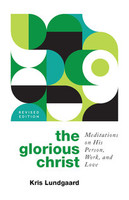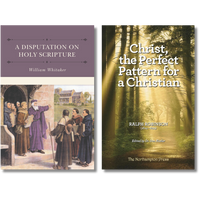
The Glorious Body of Christ: A Scriptural Appreciation of the One Holy Church (Kuiper)
- Affordable shipping (free $100+)
- 100,000+ customers served
- "Wonderful books, great prices, awesome customer service." – Ivan, IL
Description
‘Glorious’ is probably the last adjective most modern writers would use to describe the Christian Church. Yet R. B. Kuiper chose his title, The Glorious Body of Christ, advisedly, for he wished to emphasize what he believed to be a sadly neglected aspect of the subject, that the Church of Christ is glorious.
Dr. Kuiper, who died in 1966, was for many decades a teacher of theology, and his great concern was for the popular presentation of Christian doctrine. His own books went far to meet that need, including his God-Centred Evangelism (also published by the Trust) and For Whom Did Christ Die? on the extent of the atonement.
In addition to his vigorous and clear style, Kuiper is also noted for the comprehensive way in which he treats his subject. The Glorious Body contains no less than fifty-three chapters, and among the aspects of the subject dealt with are unity, the marks of the Church, the offices of the Church, its responsibilities and privileges, and the Church and the world.
Although this book is worthy of the widest possible circulation, it may be particularly commended as a manual for office-bearers in the Church.
About the Author
Rienk Bouke Kuiper was born in January 1886 in Garrelsweer in the Netherlands. His family moved to Grand Haven, Michigan in 1891 when his father accepted a call to be minister of the Christian Reformed congregation there. He was educated at the University of Chicago (A.B., 1907), Indiana University (A.M., 1908), Calvin Theological Seminary (diploma, 1911), and Princeton Theological Seminary (Th.B., 1912).
Kuiper married Marie Janssen in 1911; they had three children – Marietta, Klaudius and Kathryn, who died at the age of two. After graduating from Princeton, Kuiper served five western Michigan congregations (in the Christian Reformed Church and the Reformed Church in America) over the next seventeen years, before becoming one of the founding faculty of Westminster Theological Seminary in Philadelphia (1929-30), as Professor of Systematic Theology.
The Synod of the Christian Reformed Church then persuaded him to accept the presidency of Calvin College in 1930, in which capacity he served until being called back to Westminster in 1933 as Professor of Practical Theology. Retiring from Westminster in 1952, he returned to Grand Rapids and then accepted the presidency of Calvin Theological Seminary for four years.
He passed away in April 1966, at the age of 80.






